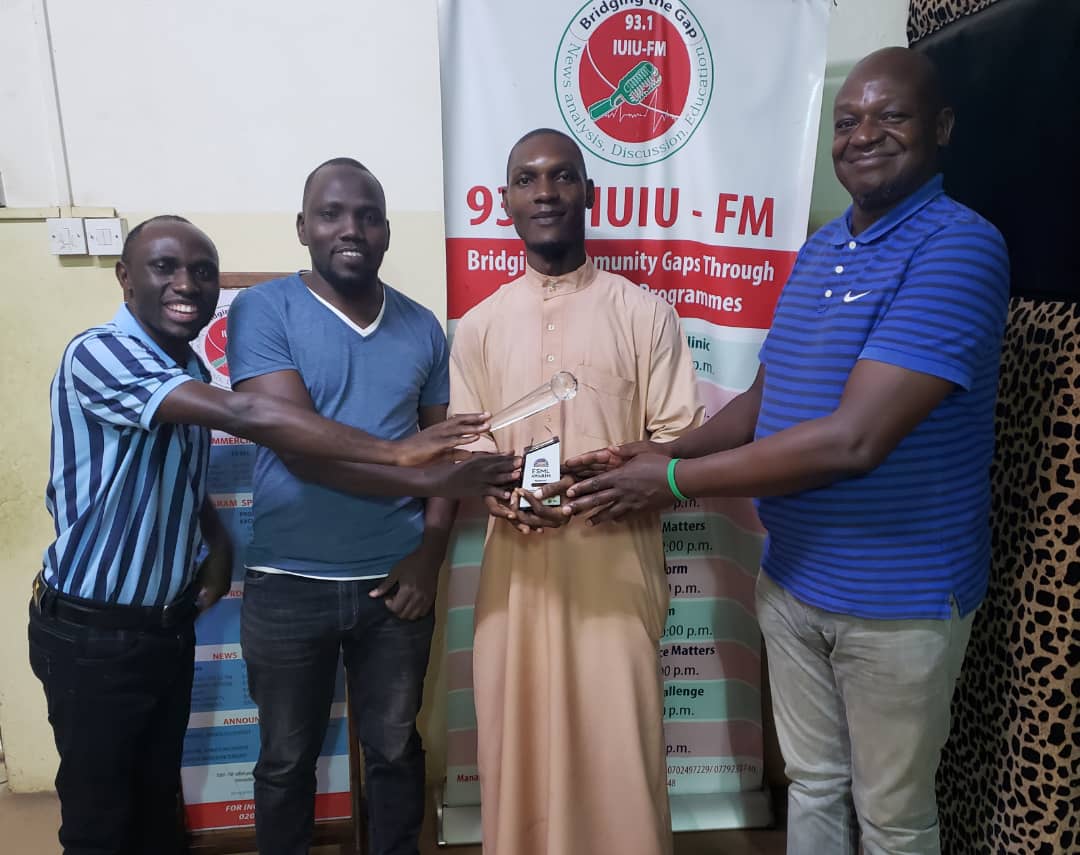Several journalists have been recognized for their exceptional contributions to promoting food safety and consumer awareness.
This was through their reporting on topics such as the nutrient profiling model, front pack warning labels, and other consumer-related issues among others.
Among the awardees was Prossy Nandudu, a reporter for New Vision, who received recognition in the best print category, Eva Namugabi from Radio One, Swaibu Busiku from IUIU FM, Patrick Jaramogi from Shift Media, and the COU Family TV team, for their outstanding work in raising awareness about nutrition and food safety.
Each winner received a cheque, an accolade, and a certificate of participation, in recognition of their efforts to raise public awareness on critical consumer and nutrition issues.
The event, the first of its kind, was Global Consumer Centre Limited (CONSENT) in partnership with other Civil Society Organisation advocating for the rights of the consumers.
To be eligible for the awards, journalists were required to attend at least four of the twelve (12) Media League webinars held over the past year.
The webinars were aimed to strengthen the media’s role in promoting food safety by building the capacity of journalists and fostering sustained partnerships in advancing food quality, safety, and consumer protection.
The sessions offered participants in-depth knowledge on food safety practices, empowering them to spread this information within their communities.
This dissemination is expected to drive grassroots advocacy, encourage better food practices, and promote informed public discourse on nutrition and consumer rights.
“Today, we celebrate the outstanding achievements of those who have gone above and beyond in sharing vital information with the public,” said Henry Kimera, Team Leader at CONSENT.
He applauded the Rwenzori region for its exceptional engagement, with special mention of individuals like Busiku for their significant contributions.
He further encouraged all participants to continue pushing boundaries in media innovation, adding that every journalist who attended at least four webinars would receive a certificate as a mark of commitment.
Hebert Kafeero, from the Southern and Eastern Africa Trade Information and Negotiations Institute (SEATINI) Uganda highlighted the influence of the media in shaping public perception and policy.
“We must challenge corporate capture and expose the influence of multinational corporations on our food systems and consumer choices,” he noted.
He underscored the importance of investigative journalism in dispelling myths around fortified foods, and advocating for sustainable agricultural practices, and pushing for robust consumer protection laws.
He said that collaboration among stakeholders is key to creating a fairer and safer food system in the country.
Bernard Bwambale………who is who?......also raised alarm over the dangers of hazardous chemicals, particularly pesticides.
“Highly hazardous pesticides pose serious risks to public health, particularly for women and children. From cancer and genetic mutations to reproductive issues and environmental damage, the dangers are undeniable. We must keep pushing for stronger food safety regulations, front-of-pack warning labels, and policies that reduce excessive sugar, salt, and fat intake to fight non-communicable diseases. The media plays a critical role in holding authorities accountable and ensuring consumer protection,” he added.
Mr. Mufumbiro Hakim from the Uganda National Bureau of Standards (UNBS) emphasized the importance of accurate food labeling, saying that misleading claims and poor enforcement put consumers at risk.
“While Uganda’s labeling standards align with international guidelines, challenges persist especially around organic labeling and health claims. Strengthening front-of-pack nutrition labeling and increasing transparency in food advertising are essential steps toward empowering consumers to make informed choices,” he said.
Uphold integrity
Dr. George William Lugalambi, Chief Executive of the African Centre for Media Excellence, underscored the importance of journalistic integrity.
He said trust is the bedrock of journalism, stressing that it’s vital that journalists uphold transparency, accuracy, and professionalism.
“Trust is the foundation of credible journalism. When disinformation spreads, it erodes public confidence in the media. To maintain trust, journalists must uphold transparency, accuracy, and high professional standards. Understanding the audience’s needs is equally important for people to turn to the media not just for news, but for insights that shape their lives. A well-informed public relies on a responsible and trustworthy press,” he added.

